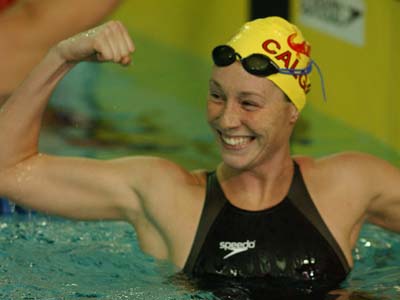 |
||||
|
Feminism in Sports
Breaking Barriers and Empowering Athletes: A History of Feminism in SportsThe history of feminism in sports is a testament to the resilience and determination of women athletes who have fought for equality, recognition, and the dismantling of gender-based barriers in the sporting world. From the early challenges faced by trailblazers to the ongoing efforts to promote gender equity, this article explores the significant milestones, key figures, and transformative movements that have shaped the history of feminism in sports. Early Pioneers: Challenging Gender Norms in Sports: In the late 19th and early 20th centuries, women faced societal barriers that limited their participation in sports. However, trailblazers such as tennis player Suzanne Lenglen and swimmer Gertrude Ederle challenged the status quo, demonstrating the skill, athleticism, and determination of women athletes. Their accomplishments paved the way for future generations to challenge gender norms and advocate for equal opportunities in sports. Title IX and Women's Sports Revolution: The passage of Title IX in the United States in 1972 revolutionized women's sports by prohibiting gender discrimination in educational institutions. This legislation led to increased opportunities for women in sports at the collegiate level, boosting female participation, scholarships, and the growth of women's athletic programs. Title IX marked a significant turning point, fostering a new era of gender equality in American sports. Feminist Activism and Gender Equity: The rise of feminist activism in the 1960s and 1970s played a pivotal role in addressing gender disparities in sports. Organizations such as the Women's Sports Foundation, founded by Billie Jean King, and the Women's National Basketball Association (WNBA) fought for fair treatment, equal pay, and recognition of women athletes. Their efforts challenged societal expectations, highlighted gender inequalities, and paved the way for transformative change. Shattering Stereotypes: Media Representation and Women Athletes: Media representation has played a crucial role in shaping public perception of women in sports. Historically, women athletes faced limited coverage and often fell victim to harmful stereotypes. However, prominent figures like Serena Williams, Martina Navratilova, and Mia Hamm defied gender stereotypes, inspiring generations of girls and women to participate in sports and challenging society's narrow definitions of femininity and athleticism. Transnational Impact and Global Movements: The feminist impact on sports is not limited to a single country or region. Women athletes worldwide have made strides in advocating for gender equity and challenging discriminatory practices. The global success and activism of athletes like Caster Semenya, Megan Rapinoe, and Mithali Raj have shed light on issues such as equal pay, LGBTQ+ inclusion, and access to opportunities, creating a ripple effect that inspires change beyond national borders. Intersectionality and Inclusive Sports: Intersectionality has emerged as a critical framework within feminist discourse in sports. It recognizes that women athletes experience discrimination based on various intersecting identities, such as race, ethnicity, class, and sexuality. Organizations like the Women's Sports Foundation and initiatives like Black Girls RUN! and Athlete Ally have emphasized the importance of inclusive sports environments, fostering empowerment and challenging systemic barriers faced by marginalized women athletes. Future Challenges and Opportunities: While significant progress has been made, challenges persist in achieving full gender equity in sports. Issues such as pay disparities, media representation, and the underrepresentation of women in coaching and leadership roles remain areas of concern. The ongoing efforts of individuals, organizations, and institutions committed to feminist principles are vital in continuing to advocate for equal opportunities and dismantling barriers in sports. Conclusion: The history of feminism in sports demonstrates the transformative power of women athletes and their allies in challenging gender norms, breaking barriers, and advocating for gender equity. From the pioneers who paved the way to the current generation of athletes, feminism in sports continues to evolve, inspiring future generations to participate, excel, and fight for equal opportunities. The journey towards gender equality in sports is ongoing, and continued collective action is essential to create a more inclusive and equitable sporting landscape for all.
Women and SportsIt is true that women are physically smaller than men, but that doesn't mean we are weaker. Estrogen promotes muscles quality, not size like testosterone does. As such women are often stronger than they first appear. Women athletes therefore can often surprise you with their strength, speed and skill. (And contrary to stereotypes female athletes are not dykes. They're women with a strong backbone.)
The Travesty of Ladies Only Golf Lessons
|
|
|||
|
|
||||
|
|
||||
 |
Health Matters - Historical Feminism - International Feminism - Lesbian Feminism - Male Feminism - Modern Feminism - Musical Feminism Philosophy of Feminism - Postfeminism - Pro-Choice Feminism - Quotes by Feminists - Religion and Feminism - Sports and Feminism |
 |
||
